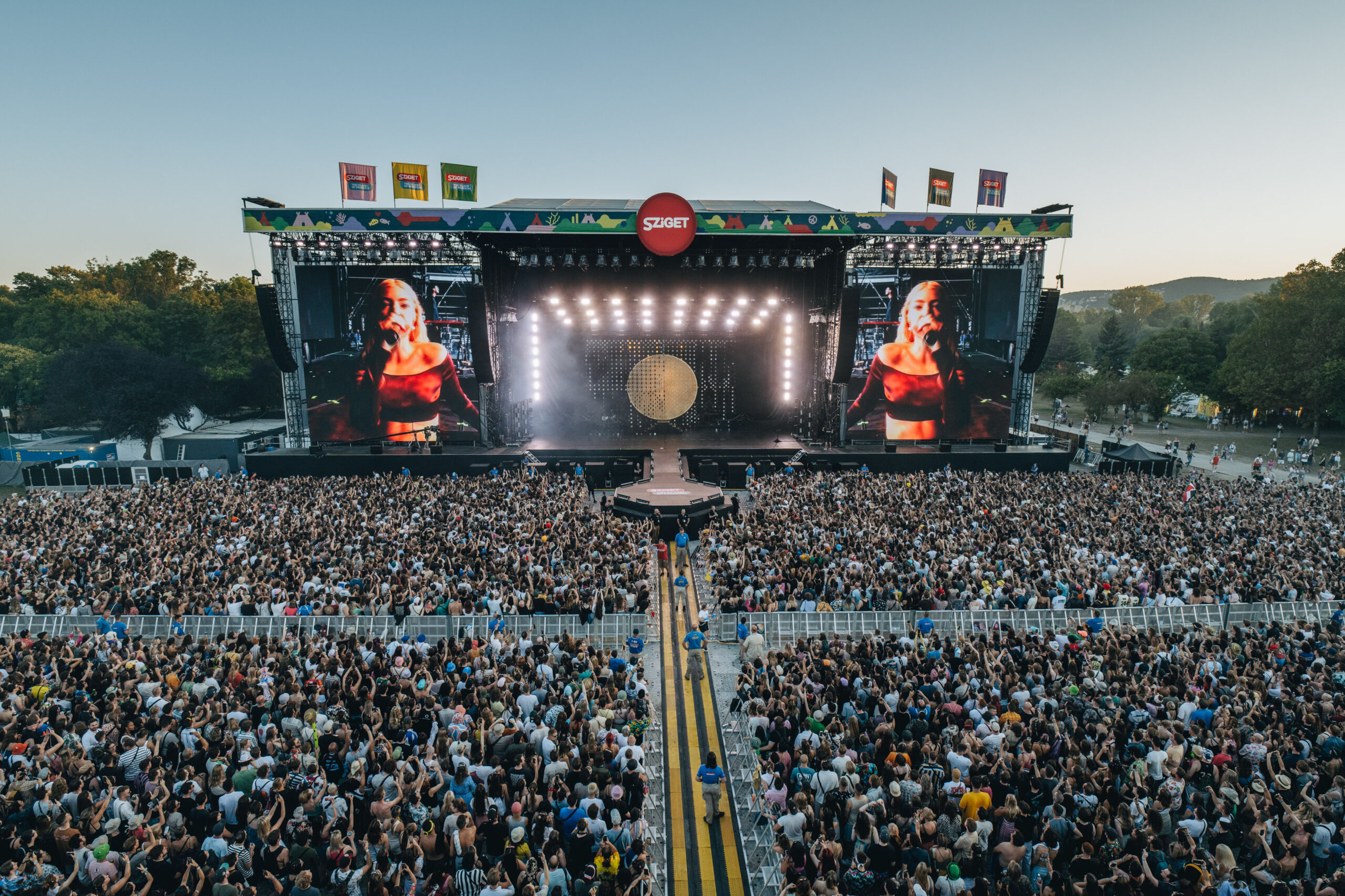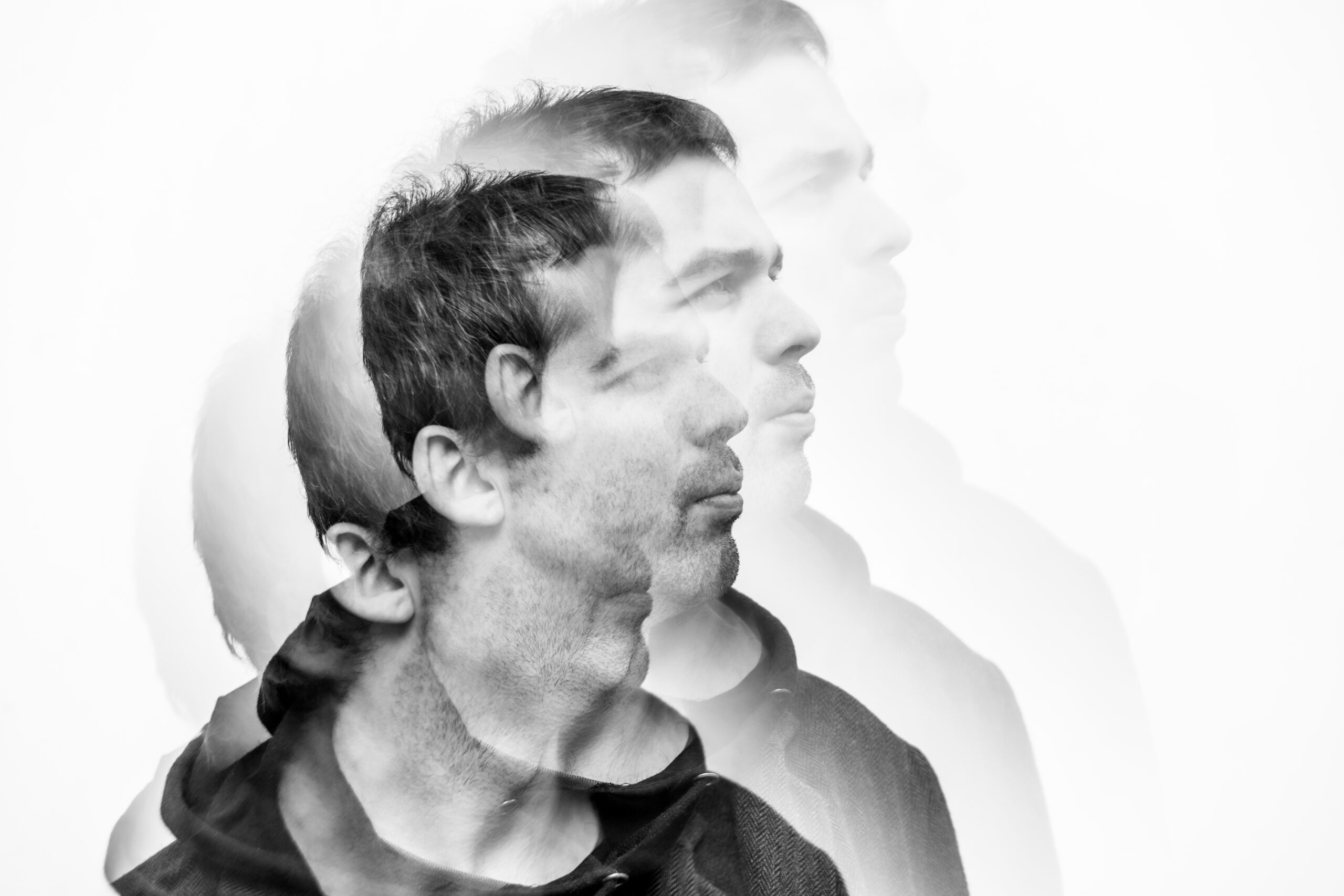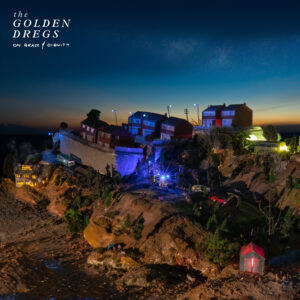 Foto-© Sebastian Madej
Foto-© Sebastian Madej
Ein kleiner Ort in Cornwall, ein Job auf der Baustelle, das Haus der Eltern: Kein Szenario, in dem normalerweise große Platten geschrieben werden. Und doch war es so als Benjamin Woods – aka the Golden Dregs – während der Pandemie seinen Job in London verlor und zum Ort seiner Jugend zurückkehrte. Herausgekommen ist sein drittes Album On Grace & Dignity, das heute bei 4AD erscheint. Neben persönlichen Reflektionen über den Verlust der Unschuld und über die eigene Minderwertigkeit, verwebt Woods seine Erzählungen mit Themen wie Überleben, verzweifelten Ausbrüchen von Gewalt, Verlust und den Einschnitten in die Gemeinschaft, im Auge der drastischen Gentrifizierung. Und das alles präsentiert er mit einer Stimme, in der die überirdische Weisheit eines Kurt Wagners (Lambchop) oder eines David Bermans (Silver Jews) mitschwingt.
Wir haben ihn schon im November vor seiner Show in Berlin (als Support für Ezra Furman) getroffen. Wir sprachen darüber, warum dieses Mal alles anders ist und warum er zum Schreiben Abstand von vielem braucht. Wir erfahren, dass ihm nach dem persönlichen Hope for the Hopeless (2019) so wichtig war, einen Schritt von sich selbst zurückzutreten und warum er das Schreiben von Texten so viel schwieriger findet als die Musik zu komponieren. Außerdem geht es um Unsicherheiten, Literatur und warum er seine Songs erst live spielt, wenn sie wirklich im Kasten sind.
Congratulations to your new album! It is coming out next February, that is three months from now. How does it feel to know you still have to carry it with you for quite some time?
You kind of forget about it. We are playing some songs of it in our live set. Bringing them in gradually is very nice – not to be totally instantaneous with it. I sat with it for a long time, and I still like it. It may be different if I did not like it.
Yes, you passed the point of no return.
I had quite a nervous feeling. When the record is being mastered, I like to attend that. And when I go, I think that, “This is kind of it now”. I am not the kind of person that has the budget to re-do something after it has been mastered. I am always very aware of that.
Does playing the new songs live change your relationship with them?
It does! The emotion behind them takes on a new meaning after they are written. Also, to experience how other people experience them changes my relationship to them. You go through waves. Sometimes you feel slightly more disconnected to a song you are performing. You are going into autopilot a bit. And sometimes they really catch you. I have not really considered that, but none of the songs have been performed live before they were recorded. It is kind of comfortable to record them first.
Is that your usual way of working? Writing and recording for yourself first, performing for others later. You do not test them live?
No. I like to work on an album as a singular body of work. I do not really consider it as something that is going to be performed while I am making it. After a while, I try to figure out how to present it live. But they are two very separate things to me.

What has also been very unusual to me preparing for our conversation, I found almost nothing about the process of making the record. I know you went back to Cornwall and recorded it there, but I am interested in the actual doing.
Yes, I left that out on purpose. I love recording. The album is self-produced and a made-in-my-bedroom-kind-of-thing. Other bits were done at a studio later, but the main thing was recorded by me. I always think that people do not find that interesting. I find it interesting, but I always assume this is boring other people.
Well, you have found at least one more person who is interested.
Yes, you asked about it! I could talk about it for days. It is a very insular process, working on it by myself. When the songs are formed, and I know what the album is looking like, I got others involved. The live band singing backing vocals. And Ted [Mair], who I am doing this tour with, has done some strings, woodwind, and brass arrangements to fill things up a bit.
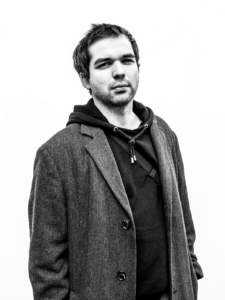 Let’s talk about the story of the album.
Let’s talk about the story of the album.
I started it in London, but it was just some instrumentals. I had loads of folders of different instruments. I have been working on different moods. I did not really have a clear idea for an album or lyrics. For my previous album, I wrote the lyrics first and fit the music to it. Which usually is the way I like to work. I like the storytelling aspect of it. I made it quite difficult for myself trying to fit the lyrics into the music. It took me ages; it was a very long process. The emotions, moods, and spirits when I moved back to Cornwall started to form which of the instrumentals will make it to the songs.
It sounds like combining two different bodies of work instead of working on one.
Yeah, I guess. When I talked about it recently, I realized my approach to those and my state of mind with those were very separate. I find the musical part of it incredibly relaxing. I could just lose myself in that for days and be completely focused and enjoy every bit of it. The lyric part I find a bit more torturous. I agonize about trying to get the words in. In the framework of a song, you do not get that much space. I worry about wasting it for stuff that is meaningless. That takes a lot of drafting and re-drafting.
It is almost ironic then that you take very big concepts to put into your songs. With your last record it was hope, with On Grace & Dignity the main theme is home. Yet, I found the lyrics quite narrative. Are you inspired by literature?
I really am. I do not read much. It is a shame, I have brought books with me, I have not opened them yet. When I do read, I am always inspired by it. I like short stories, some poetry. I do not know much about it but reading Raymond Calvert inspired my last album. Richard Hugo is an American poet I find really inspiring and Lydia Davis, who is a short story writer. I do not feel like a song is complete until the lyrics look good on a page. I certainly do not think it is poetry, but it is an important thing to me that it reads well.
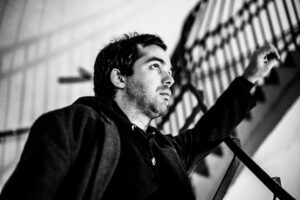
Talking about your home is very personal, but your lyrics also are quite conceptual. You combine the most private with the bigger picture. Can you tell us more about that?
I made conscious efforts to do something that is less self-absorbed. I am very aware that my last album was a lot of me feeling sorry for myself. I was trying not to write too much of me in it. I did not set out the narrative from the start. I did not realize from the beginning that all the songs could be placed into this geographical location. Looking at the body of work afterwards I could see the narrative and where it is taking place. I know all these places because this is where I grew up and where I live now. It became a very visual project for me, which we tried to mirror in the artwork of the album. We got Edie Lawrence – a model maker – to build this fictional Cornish town.
So, On Grace & Dignity is not a concept album? At least not a conscious concept album?
I feel like all albums have some concept. Otherwise, it is just a collection of songs. But I do not write that way. It always has some sort of slight theme to it, but it comes later.
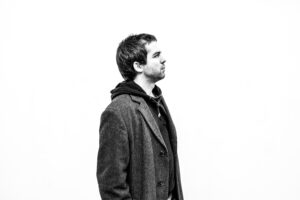 The writing of this album took place outside an art bubble. You were in a completely different world with your parents, with your job. Do you think the physical disconnection from the art world came you a different perspective for this album?
The writing of this album took place outside an art bubble. You were in a completely different world with your parents, with your job. Do you think the physical disconnection from the art world came you a different perspective for this album?
That is so true. I try to write all the time, but I am not very disciplined. From my three records, most of them were written in a very condensed period and probably away from that bubble. Now I am worried about writing another album, how am I going to get away from that bubble now [laughs]? We are just going to be touring. But I still have time for some decent writing. I did not listen to much music while I was writing, I do not really now. Maybe that helps to not be overly affected by what other contemporaries are doing. I end up getting very self-conscious and concerned about what I am doing and not being cool. It is detached from that to create something and see if people like it.
It seems to work so far!
Thank you, I am certainly pleased with the development. I do surprise myself sometimes.
Thank you for the interview!
the GOLDEN DREGS Tour:
23.04.23 Hamburg, Molotow (mit Anna B Savage)
24.04.23 Köln, Bumann & Sohn
25.04.23 Berlin, Urban Spree


